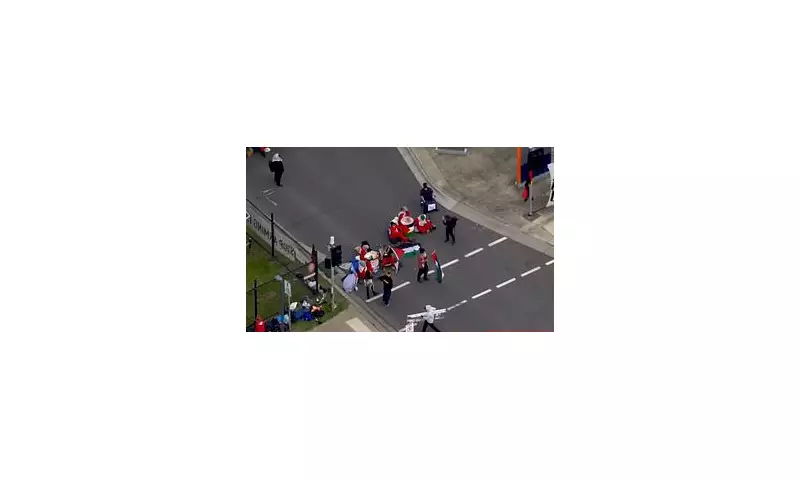
In a dramatic escalation of pro-Palestine activism, the bustling Port of Melbourne was brought to a grinding halt as hundreds of protesters blockaded its key entrances during the morning rush hour.
The organised group, representing a coalition of pro-Palestinian and socialist groups, effectively severed access to Australia's largest freight hub. Their primary demand was a definitive end to Australian arms exports and military ties with Israel, amid the ongoing conflict in Gaza.
Scenes of Disruption and Defiance
The protest sparked significant chaos, with long queues of freight trucks and commuter vehicles backed up for kilometres around the port area. Police were swiftly deployed to manage the escalating situation, attempting to clear access points and engage with protest leaders.
Activists, undeterred by the growing traffic snarl, chanted slogans and held banners reading 'Free Palestine' and 'End the Gaza Genocide'. The demonstration was strategically timed to coincide with the arrival of the ZIM Shanghai, a container ship owned by the Israeli-based ZIM Integrated Shipping Services, which became a symbolic target for the protesters.
The Core Demands and Police Response
Protest organisers issued a clear statement: their action was a direct response to the Australian government's perceived support for Israel. They called for an immediate and total arms embargo and the cutting of all military and diplomatic ties with the nation.
Victoria Police confirmed they were monitoring the situation and conducting ongoing safety assessments. While no immediate arrests were reported at the initial blockades, the tense standoff between law enforcement and determined activists characterised the morning's events.
A Pattern of Growing Activism
This port blockade is not an isolated incident but part of a wider, intensifying wave of pro-Palestine protests across Australian cities. From rallies outside politicians' offices to disruptions at major transport and economic hubs, activists are increasingly adopting direct-action tactics to force their demands into the national spotlight.
The lasting impact of this demonstration extends beyond the immediate logistical nightmare for the port. It signals a deepening resolve within the protest movement and poses continued challenges for authorities balancing the right to protest with ensuring public order and economic functionality.





